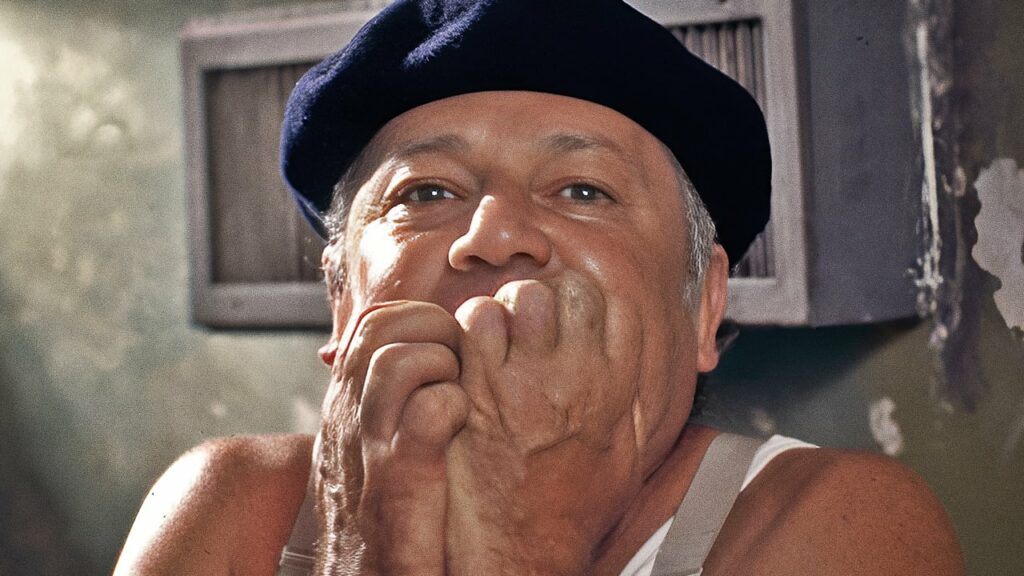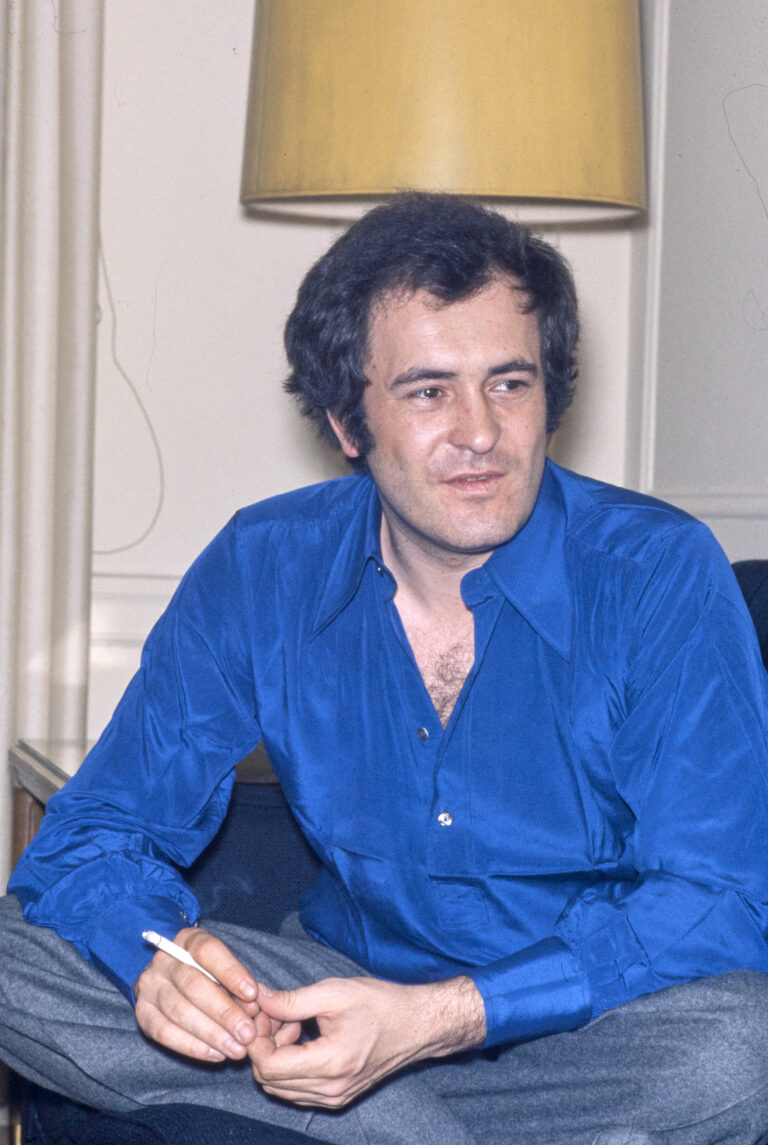
Introduction
Paolo Villaggio was an iconic figure in Italian cinema, literature, and television. Best known for his portrayal of Ugo Fantozzi, a hapless office clerk whose life epitomized the absurdities of bureaucracy and societal pressures, Villaggio’s work reflected a unique blend of slapstick humor and biting social satire. Over a career spanning decades, Villaggio not only transformed the landscape of Italian comedy but also cemented his status as a cultural icon whose influence remains palpable even today.
Early Life and Background
Paolo Villaggio was born on December 31, 1932, in Genoa, Italy, into a middle-class family. His father, Ettore Villaggio, was a surveyor, and his mother, Maria Villaggio, was a German language teacher. Growing up during the tumultuous years of World War II, Villaggio’s childhood was marked by hardship and insecurity. These early experiences would later shape his sharp sense of humor and satirical perspective on society.
Villaggio’s education was typical for a child in post-war Italy. After completing high school, he enrolled at the University of Genoa but did not complete his studies, choosing instead to explore different paths, including working as a clerk and entertainer.
Early Career Before Acting
Before finding fame as a comedian and actor, Villaggio held various jobs, including a stint at the Genoa steel mills and work as an entertainer on cruise ships. It was during these early professional experiences that he observed the rigid social structures and absurdities of corporate life — themes he would later explore through the character of Ugo Fantozzi.
Villaggio’s ability to entertain and make people laugh became evident when he began performing comedic sketches for tourists aboard cruise liners, laying the foundation for his career in entertainment.
Breakthrough as a Comedian and Actor
Villaggio’s entry into show business came through television in the late 1960s. He became a regular on the popular Italian TV show Quelli della Domenica, where his witty and irreverent sketches gained widespread popularity.
It was during this period that Villaggio began crafting characters based on his observations of everyday Italian life, including the timid and bumbling Ugo Fantozzi. His unique brand of comedy, which combined physical humor with scathing social critique, resonated with audiences across the country.
The Creation of Ugo Fantozzi
In 1971, Villaggio published Fantozzi, the first in a series of books featuring the character Ugo Fantozzi. The book was an instant success, selling millions of copies and earning critical acclaim for its satirical depiction of life in a bureaucratic corporate environment.
Fantozzi was portrayed as an unfortunate, subservient office worker constantly humiliated by his superiors and plagued by absurd circumstances. The character struck a chord with readers and quickly became a cultural phenomenon.
The success of the books led to the adaptation of Fantozzi into a film in 1975, directed by Luciano Salce, with Villaggio himself playing the titular role. The film’s success spawned a franchise that lasted for decades.
Fantozzi Film Series
The Fantozzi films are among the most beloved comedies in Italian cinema. The franchise includes ten movies, all featuring Villaggio as the hapless protagonist:
- Fantozzi (1975)
- Il Secondo Tragico Fantozzi (1976)
- Fantozzi Contro Tutti (1980)
- Fantozzi Subisce Ancora (1983)
- Superfantozzi (1986)
- Fantozzi Va in Pensione (1988)
- Fantozzi alla Riscossa (1990)
- Fantozzi in Paradiso (1993)
- Fantozzi – Il Ritorno (1996)
- Fantozzi 2000 – La Clonazione (1999)
The films depict Fantozzi’s misadventures in both his professional and personal life, highlighting the absurdities of bureaucracy, social pretensions, and human folly.
Beyond Fantozzi: Other Notable Film Roles
While Ugo Fantozzi defined Villaggio’s career, he also took on other roles in Italian cinema, often showcasing his versatility as an actor.
Some of his notable films outside the Fantozzi series include:
- Io Speriamo Che Me La Cavo (1992), where he played a compassionate schoolteacher facing challenges in a troubled southern Italian town.
- La Voce della Luna (1990), directed by the legendary Federico Fellini.
- Denti (2000), a psychological drama that demonstrated Villaggio’s ability to handle darker roles.
These performances earned him critical acclaim and demonstrated his capacity to move beyond comedy into more dramatic and complex roles.
Villaggio as a Writer
Villaggio was a prolific author who wrote several bestselling books. His works often featured biting social commentary and explored themes of power, submission, and the absurdity of everyday life.
In addition to the Fantozzi series, he authored books such as Carlo Martello Ritorna dalla Battaglia di Poitiers and Vita, Morte e Miracoli di Un Pezzo di Merda.
Television and Stage Career
Villaggio’s contributions to Italian television were significant. He appeared in numerous talk shows, comedy specials, and variety programs, where his quick wit and humorous insights made him a beloved guest.
He also had a successful stage career, performing in theatrical adaptations of his literary works and original comedic productions.
Awards and Recognition
Villaggio received numerous accolades throughout his career, including:
- David di Donatello Award for Best Actor
- Nastro d’Argento for Best Actor
- A special Venice Film Festival Lifetime Achievement Award
These honors recognized his immense contribution to Italian cinema and literature.
Personal Life
Villaggio was married to Maura Albites, with whom he had two children, Elisabetta and Pierfrancesco. Despite his public persona as a comedic genius, Villaggio was known to be introspective and reflective in his private life.
Political Views and Controversies
Never one to shy away from controversy, Villaggio often expressed strong political opinions. He was a vocal critic of bureaucracy, corruption, and societal hypocrisy. His satirical approach sometimes sparked debates but also endeared him to those who appreciated his candidness.
Later Years and Legacy
In his later years, Villaggio continued to be celebrated as a cultural icon. He occasionally appeared on television and participated in interviews, reflecting on his career and the evolution of Italian comedy.
His influence on Italian culture remained undeniable, with younger comedians and filmmakers often citing him as a source of inspiration.
Death and Tributes
Paolo Villaggio passed away on July 3, 2017, in Rome, Italy, at the age of 84. His death was met with widespread mourning, and tributes poured in from fans, colleagues, and public figures.
The enduring popularity of Ugo Fantozzi and Villaggio’s other works ensures that his legacy continues to thrive in Italian culture.
Conclusion
Paolo Villaggio’s life and career exemplify the power of comedy to address societal issues and bring joy to millions. Through his unforgettable portrayal of Ugo Fantozzi, his literary contributions, and his influence on Italian entertainment, Villaggio remains a timeless figure in the world of comedy and satire.
FAQs About Paolo Villaggio
1. What is Paolo Villaggio best known for?
He is best known for creating and portraying the character Ugo Fantozzi in a series of films and books.
2. How many Fantozzi films did Paolo Villaggio star in?
He starred in ten Fantozzi films between 1975 and 1999.
3. Was Paolo Villaggio also a writer?
Yes, he authored several bestselling books, including those featuring Ugo Fantozzi.
4. What awards did Paolo Villaggio win?
He received numerous accolades, including the David di Donatello Award and Nastro d’Argento.
5. When did Paolo Villaggio pass away?
He passed away on July 3, 2017, in Rome, Italy.
6. What made Ugo Fantozzi a significant character?
Fantozzi symbolized the struggles of the average Italian worker, making him a relatable and enduring figure in Italian culture.




